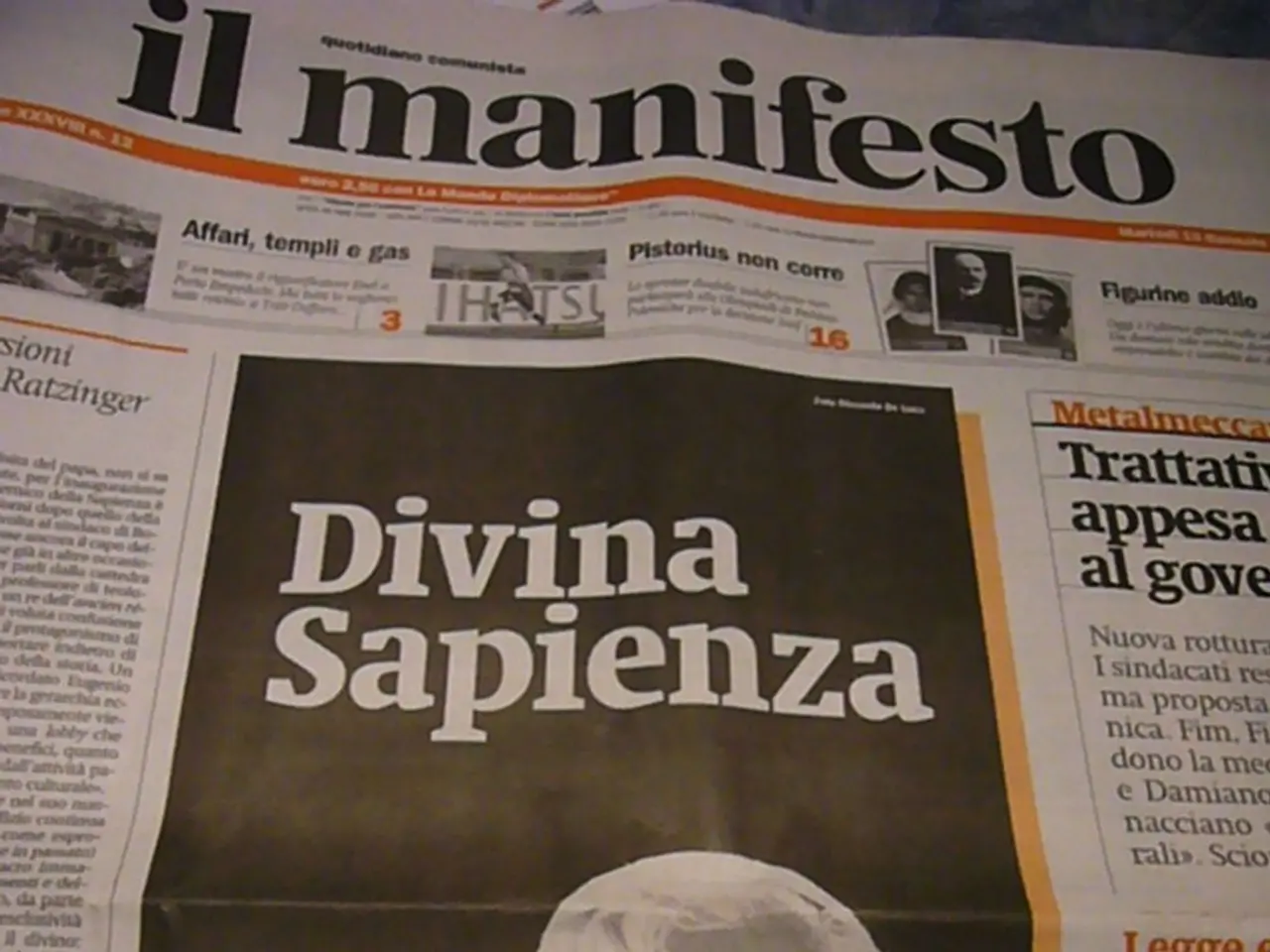Media in America, Kamala Harris, and the Yenan Approach Under Scrutiny
In the realm of intellectual criticism, Richard Weaver and Eric Voegelin stand out as prominent voices, offering insights into the effects of modern media on societal values and political ideologies. Their perspectives, rooted in broader critiques of contemporary culture and politics, provide a compelling analysis of how media influences our spiritual, moral, and political landscape.
Richard Weaver, a critic of modern civilization, laments the decline of deeper, transcendent values under the influence of modernity. He believes that technological advancements, including modern media, contribute to a spiritual impoverishment and a weakening of traditional values, as they prioritize surface-level information and undermine profound cultural and metaphysical understanding.
On the other hand, Eric Voegelin, a sociological critic, expresses concern about how modern narratives distort reality and lead to ideological fanaticism. His work often focuses on how modern political ideologies, influenced and spread by media, contribute to social fragmentation and the loss of meaningful order. Voegelin suggests that modern media can serve as a vehicle for ideological propaganda, promoting simplistic, reductionist worldviews that diminish the complexity of human experience and undermine genuine political and social engagement.
Both thinkers suggest that modern media plays a significant role in altering societal values by undermining spiritual depth (Weaver) and by facilitating ideological distortions and violence (Voegelin). This results in a society where political ideologies become more polarized and less grounded in enduring, shared truths, exacerbated by the rapid dissemination and oversimplification of information through modern media channels.
Weaver refers to mass media as "The Great Stereopticon," encompassing television, newspapers, magazines, and the Internet. He believes that the newspaper, a spawn of the machine, has ever been closely linked with exploitation, financial and political. Weaver also notes that the mass media minimizes discussion and encourages people to read in the hope they will absorb, rather than engage in critical thought.
Voegelin, meanwhile, warns that our civilization, built upon Greek philosophy and Christian theology, faces a theoretical retrogression when it rejects this heritage in favor of "ideology." He argues that this retrogression must result in "types of derailment which Plato characterized as doxa," or popular opinion that lacks philosophical foundation.
In conclusion, Weaver and Voegelin's perspectives underscore that modern media is not neutral; it actively shapes societal values and political beliefs in ways that often undermine depth, truth, and social cohesion. Their critiques serve as a call to reconsider the role of media in shaping our society and to strive for a more informed, thoughtful, and balanced discourse.
- Richard Weaver and Eric Voegelin, both critics of contemporary culture, voice concern over the influence of modern media on societal values and political ideologies, believing it to be a significant factor in the decline of deeper, transcendent values and the increase of ideological polarization.
- Weaver, in particular, considers media a spiritual impoverisher, as it prioritizes surface-level information over profound cultural and metaphysical understanding, while Voegelin warns of its potential to promote simplistic worldviews that diminish human experience and undermine genuine political and social engagement.
- Voegelin goes further, stating that the rejection of Greek philosophy and Christian theology in favor of ideology can lead to a theoretical retrogression, causing derailment and popular opinion lacking philosophical foundation.
- This theoretical retrogression, Voegelin argues, can contribute to social fragmentation and ideological fanaticism, a concern echoed in Weaver's description of media as "The Great Stereopticon," a tool that minimizes discussion and encourages passive absorption rather than critical thought.
- In the realm of general news, crime, and justice, these concerns extend to issues of war and conflicts, where media can serve as a vehicle for ideological propaganda, potentially distorting reality and exacerbating conflicts.
- Consequently, Weaver and Voegelin's critiques serve as a call to reconsider the role of media in shaping our society, advocating for a more informed, thoughtful, and balanced discourse that prioritizes depth, truth, and social cohesion.







